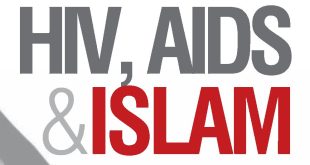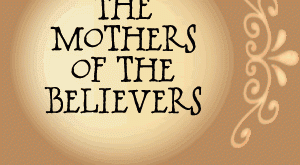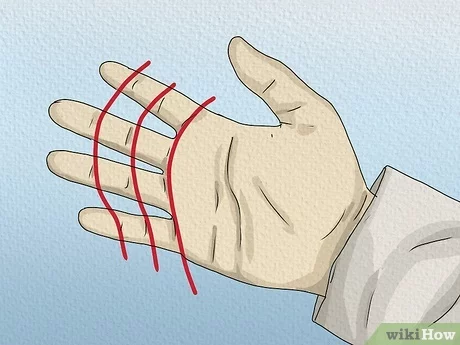It is quite rare these days to hear anything good about Muslims from the Anglo-American news media. There are, however, some exceptions in the West and Dr. Richard Bulliet, Professor of History Columbia University, New York is one of them. He narrated the scenarios that elevated the Muslims as the Torch Bearers during those Dark Ages of Europe and helped them achieve their Renaissance.
Roman civilization begins around 250 BC and ends around 500 AD. But the Renaissance starts about 1,300 AD – a difference of 800 years. This is referred to as the European Period of Darkness by the contemporary historians. While no progress may have happened in the Western World during those days because of religious dogmatism, but did the rest of the world take a recess too for 800 years? The answer is ‘surely not'.
 |
During the Dark Ages of Europe, the Islamic civilization created a superdome for innovative science and technology. Muslim countries of that time helped wipe out the cavity of darkness in Europe. In recognition of this Professor Bulliet commented “if it had not been for the Muslims, we might have never had Renaissance at all.”
Newness and novelty
The inception of Islam took place in the 7th Century in a small city known as Meccah. Islam was not a new faith but its message was filled with newness and novelty. It had more congruity than conflict with other monotheism. It didn't have any plan to change Christianity or Judaism; rather it had its building block on the cognizance of the Judeo-Christian Prophet hood. Islam had an unbending theme of abolishing social injustice. Within a short while, the message of Islam traversed throughout the whole Arab Peninsula, Palestine, Jordan, Syria, Iraq, Persia and North Africa, Spain and all the way to Indian subcontinent. Even the far-reaching China felt the inviting rhythm of Islam.
At the beginning, Islamic people were simple-minded desert dwellers. They however, had indomitable desire to adopt other's virtue and enrich their own knowledge, technology and means of life. That's why the footsteps of Islamic people could be traced to Greece, Italy, Persia, India, and all the way to the doors of China. During those days of Islam, Islamic civilization was free from religious constrictions. The people of Islamic domain represented a conglomerate that possessed honorable positions in all aspects of civilized societies even though they differed in race, religion and country of origin.
One of the greatest times of Islamic achievements can be traced to the time of Caliph Harun-ar-Rashid. His empire had the imprint of Hebrew physician, Greek philosopher, Turkish soldier and many more. The stories about Aladdin and his magic-lamp, Sinbad the Sailor, Alibaba and Forty Thieves and many other folk-tales were not based on the Arabs alone. But all of them had the flavours of the Arabs. People during the prevalence of Islamic civilization, spoke in Turkish, Hebrew, Persian and Greek but even then their official language was Arabic.
For instance alcove is derived from al-qubbah, almanac is from al-manaakh, algebra from al-Jabr, alcohol from al-kuhul and alkali from al-qili. The counting process of algorithm is named after al-Khwerazmi. He was a renounced mathematician and a notable advisor to Harun-ar-Rashid. Al-kimia was a chemist and his name could be traced to alchemy. The Muslim chemists tried hard to enhance the longevity of the livings. Their efforts eventually paved the way to modern chemistry.An exclusive artistic design that is known to us as Arabesque is pivoted on skilful presentation of Arabic letters. Thousands of scientific names in English today have Arabic roots. In general if we notice ‘al’ at the beginning of a word, chances are that it originates from Arabic.
Medical treatment
Even in the field of surgery, the Muslims of the medieval times contributed a lot. Here Professor Bullet had wholehearted praise for them. He wrote “they also made great strides in saving life and healing the sick. They invented many new medical instruments and made important breakthroughs in optics and surgery. Islamic medicines were much more advanced than anything going on in Europe.”
There was, in the 9th Century, a famous Muslim physician named Ar-Razi (to the West he is known as Razi). His research, in the field of medical treatment, still occupies an influential place. Ibn Sina of Bukhara is known as Avicenna in Europe. During the 10th Century he wrote a medical encyclopedia and named it as the Canon of Medicine. It was then unrivalled in the medical history. The prevalence of the Canon of medicine was indispensable in Europe throughout the 17th Century. It was the Muslim physicians that introduced the concept of pharmacy and hospital for the first time in medical history.
From the 7th to the 12th Century, the people of the Islamic countries showed enormous excellence in literature, science, trade and commerce. But right at the door of science there was mathematics and mathematics needs digits and numbers. In this context Professor Bulliet, with a heartfelt thank recognized and said “this is where the medieval Muslims made a contribution that benefits each of us every day”. The counting method that existed prior to Muslim's decimal system was known as Roman method. Its application was a nightmare even to the experts – let alone ordinary people.
To eliminate this counting hardship, the mathematicians of the Muslim empire imported a new system from India and improvised it with the introduction of zero. The system contains nine numerals and one zero and the value of each numeral is dependent on its place value. Thus if we write 1, its value is one, but when we write 11, then from the left the value of the first 1 is ten and the second 1 is one, and the combined value is eleven. Thus when we place a “0” after 1 the value is ten. In modern science, this is known as the decimal system. Here too, Professor Bulliet gave enormous credits to the Muslim. He picked up a year and made a remark “thanks to the Muslims we no longer have to write MCMLXXXIV and instead we write 1984”. The credit for the decimal system of numbers is, in general, given to the Arabs. Here Professor Bulliet was cautious and explained “although strictly speaking, they are Indian numerals, but hadn't it been the mathematicians of the Islamic Empire, they might never have reached the Western World”.
Paper, though indispensable as a carrier of knowledge to the civilized world, was not invented in Europe – rather in China. But throughout the world the making of paper bears the hallmark of the Muslims. Right from the 8th to the 11th Century, the paper making technology reached all the way from Samarqand to Spain. Besides new invention, the Muslims reinvented others’ invention and made them accessible over time to sustain continuity.
European Renaissance
Let us now come to the eras of European Renaissance. All that we know about Greek philosophy, literature and science are intricately tied to European Renaissance. The Europeans, after 800 years of intellectual darkness didn't have a chance to read about Socrates, Plato, Aristotle, Euclid, Hypocrites and other Greek notables in their original composition in Greek. Rather they read them in Arabic. The Catholic Christianity believed these Greeks literary treasures as the works of the pagans and consequently had them destroyed.
There was a time when the Muslim Caliphs patronized the translation of all the famous Greek literature in Arabic, especially by Caliph Abdullah-al-Mamun (son of Harun ar-Rashid). In 830, he established the House of Wisdom, a centre for Greek translation work. This effort saved the Greek literary antiquities from vanishing away from the surface of the earth. In the 10th and 11th Century, the knowledge-thirsty Europeans flocked into Islamic cities.
Their learning centers were Cordoba, Baghdad, Damascus, and Cairo which were the places that were the centers of higher learning.
There were also the cities where the Greek classics got translated from Arabic to Latin. These cities were not just for the Europeans to study Greek literature alone, rather they housed Chinese, Indian, Persian, Hebrew and other scholars. The collective efforts of these scholars helped restore most of the Greek classics that exist today.
In those early days of higher learning, the students used to sit around the chairs of the teacher. Some scholars are of the opinion that this position of the chair and students, eventually turned into departmental identification of the faculties such as ‘Chair of Philosophy, Chair of History’ and so on.
Some scholars are also of the opinion that the academic gown worn during convocation has impeccable Islamic imprint. Thinking rationally, it would be obvious that other than established traditions, acquired from the oldest university of the world, there could be no reason to wear a costume on the convocation day, which should look like an Arab Sheikh. History tells us that Al-Azhar in Cairo is the first and the oldest university of the world. It was built as a formal university in 970 AD.
While the West takes pride for their nuclear and mechanical advancement today, but do they realize who gave them the initial stepping stone to stand on? Who gave them the torch to search through the caves of the Dark Ages? Weren't they the Muslims of middle ages across the Mediterranean Sea? Didn't they keep the torch of civilization kindled up for eight hundred years before the West got rejuvenated?
Post Disclaimer | Support Us
Support Us
The sailanmuslim.com web site entirely supported by individual donors and well wishers. If you regularly visit this site and wish to show your appreciation, or if you wish to see further development of sailanmuslim.com, please donate us
IMPORTANT : All content hosted on sailanmuslim.com is solely for non-commercial purposes and with the permission of original copyright holders. Any other use of the hosted content, such as for financial gain, requires express approval from the copyright owners.
 Sri lanka Muslims Web Portal Sri Lanka Muslims News Center
Sri lanka Muslims Web Portal Sri Lanka Muslims News Center
 Donate
Donate


